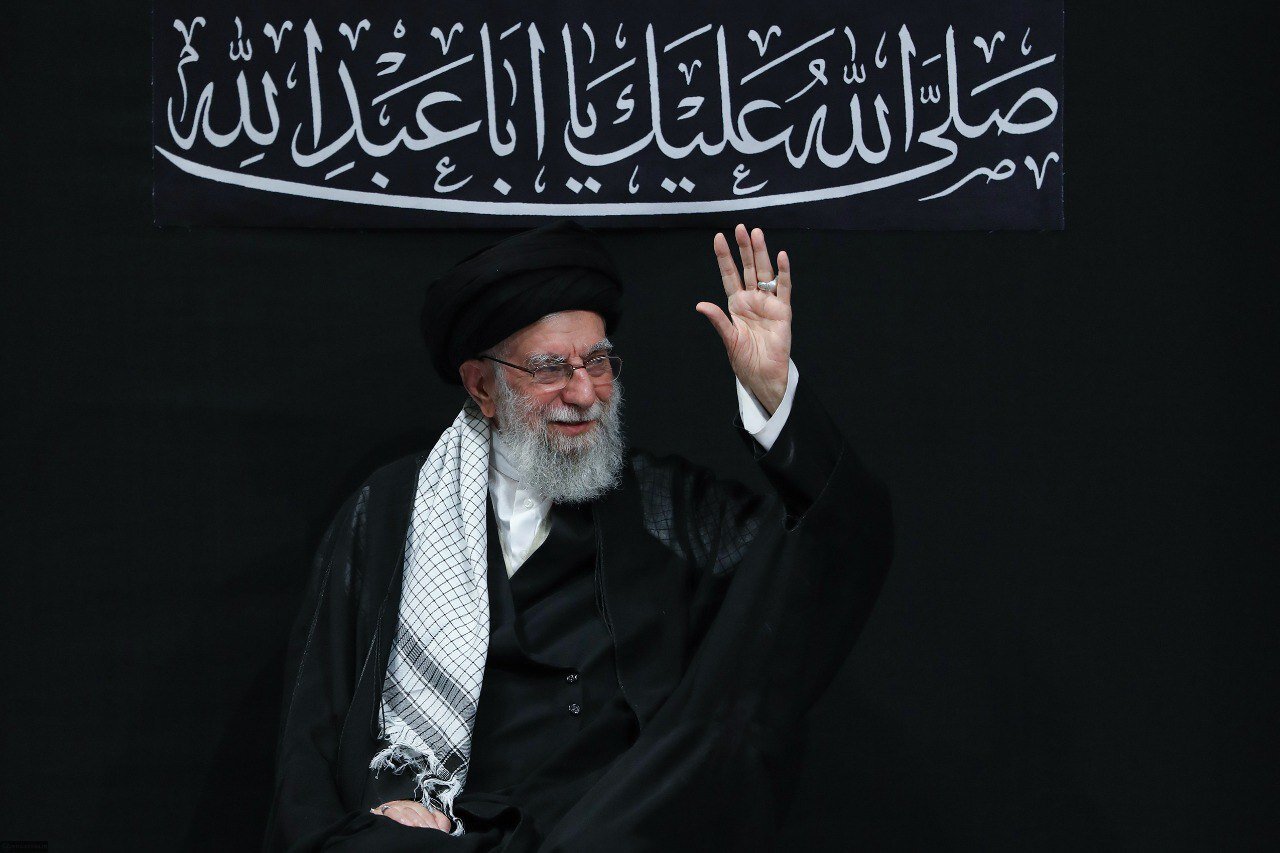Chants of 'Haidar, Haidar', Tears of 'Ey Iran'
Leader attends public ceremony after Israeli, Western media claim he is in hiding

TEHRAN – The Israeli regime's war against Iran started suddenly and unexpectedly. The regime assassinated top military generals, nuclear scientists, and civilians in airstrikes, a move that prompted a response within 12 hours, much to their dismay.
This response wasn’t just a one-time attack on June 13. It was the first wave of at least 21 missile attacks that decimated Israeli cities, took out some of the regime’s strategic and military sites, and crushed the spirit of the settlers who had been basking in the success of the tactical victory they had gained on the first day, unaware that the tables were soon going to turn.
When the war ended as suddenly as it began on5 June 24, all Israelis were left with was destruction and disappointment. None of their objectives, whether the supposed aim of “obliterating” Iran’s nuclear program or toppling the government, had been fulfilled.
Under these circumstances, recognizing its military limitations, at least for the moment, the regime opted to continue its psychological war against Iran. A huge part of that psychological war failed during the military confrontation, as the Iranian people refused to leave the side of their political and military leaders no matter how many times Benjamin Netanyahu tried to tell them, either directly or through the stenographers that run Persian news channels in the West, that his fight was not “with the people.” Iranians saw right through that lie, so Netanyahu needed a new one. With that, and after the halt in fighting, Israel shifted towards disparaging the Leader of the Islamic Revolution, Ayatollah Seyyed Ali Khamenei, asserting that he had “gone into hiding” and that he was no longer “ruling” the country. The regime’s affiliated media outlets told their audiences that Ayatollah Khamenei was “scared” of assassination, and that he had left his followers behind.
This new campaign of lies also faltered in a short period of time. On July 5, the Leader took part in a mourning ceremony for Imam Hussein taking place in the Imam Khomeini Hussainie. He entered the room as the crowd was focused on an elegy reciter. Attendees turned their heads as Ayatollah Khamenei walked in, quickly rose to their feet, and began to chant slogans.
A prominent slogan was "Haidar, Haidar," a reference to a nickname for Imam Ali (AS) – the son-in-law of Prophet Muhammad (PBUH) and the first Shia Imam – whom Ayatollah Khamenei shares a name with. Shortly after entering, the Leader took a seat, signaling the crowd to follow suit, though they continued chanting for at least a minute after his arrival.
The rest of the ceremony went on without any notable events. By the end of the mourning, Ayatollah Khamenei called on the elegy reciter and spoke to him for a few seconds. He had a faint smile on his face, and his demeanor looked somewhat relaxed. The reciter then returned to his seat, placed in front of the crowd, saying the Leader had asked him to recite “Ey Iran”, a patriotic song multiple generations of Iranians know by heart.
“In my soul and life, you shall remain, O my land,” the reciter sang, as several people in the crowd began to shed tears with a solemn expression. Ayatollah Khamenei was also seen listening intently.
The July 5 ceremony in Imam Khomeini Husseinie marked the first time a patriotic song had been featured during a mourning ceremony for Imam Hossein, which is inherently a religious ritual. Analysts suggest this was a message from the Leader to Israel and the U.S.: regardless of the number of propaganda campaigns or attempted airstrikes, the Iranian nation remains united and determined to pursue its legitimate rights.
The message resonated quickly, at least within Iran. Even those who hadn't attended the mourning session, or who rarely participated in religious ceremonies, turned to social media to commend the Leader's "courage" and "warmth". "Ayatollah Khamenei's recent appearance has brought me a sense of relief and pride, just like his video message at the beginning of the war did,” wrote a young Tehrani woman on X. Her profile picture and prior activities on the platform suggested she wasn't particularly religious.
Leave a Comment